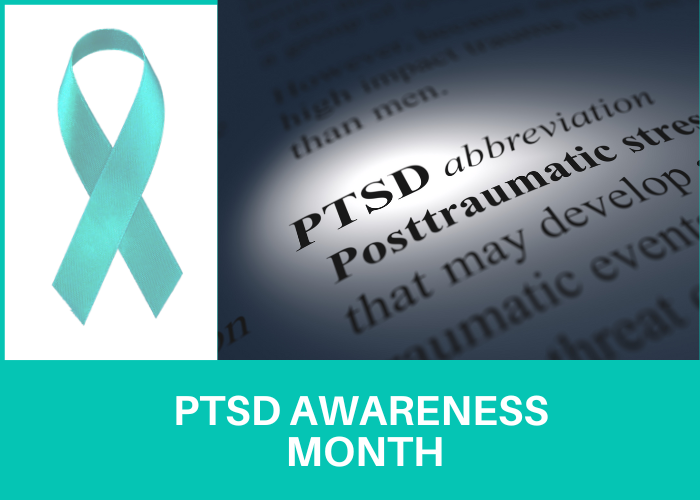When most people hear the term Post-Traumatic Stress Disorder (PTSD), they often picture military veterans reacting to the trauma of war. While veterans are certainly affected, PTSD is not limited to combat survivors. It is a serious mental health condition that can affect anyone, including children, individuals with disabilities, and those with intellectual or developmental challenges.
At Casmir Care Services, we know that trauma can look different for everyone. Individuals with intellectual and developmental disabilities (IDD) often face unique vulnerabilities that make them more likely to experience traumatic events and, as a result, more susceptible to PTSD. June is PTSD Awareness Month, a time to shine a light on this complex condition and provide education on how to support those living with it, especially within the disability community.
According to the National Institute of Mental Health, about 3.5% of U.S. adults experience PTSD each year. However, for people with intellectual and developmental disabilities, this number may be higher, yet their symptoms often go unrecognized or misunderstood.
Trauma in individuals with IDD may include:
- Abuse (physical, emotional, or sexual)
- Bullying or neglect
- Medical trauma from frequent hospitalizations
- Loss of caregivers
- Environmental instability or sudden life transitions
Because communication challenges may make it difficult to express feelings or memories, symptoms of PTSD in individuals with disabilities might show up as changes in behavior, increased agitation, withdrawal, sleep disturbances, or regression in skills. PTSD is a mental health disorder that can develop after exposure to a traumatic event such as violence, abuse, accidents, natural disasters, or other distressing experiences. While many people recover naturally over time, others develop long-lasting symptoms that interfere with daily life.
Common signs of PTSD in individuals with or without disabilities may include:
- Startling easily or appearing on edge
- Flashbacks or reliving the trauma
- Avoiding people or places that remind them of the event
- Irritability or angry outbursts
- Nightmares or trouble sleeping
- Withdrawal from favorite activities or relationships
- Changes in appetite or mood
- Regression in communication or self-care skills (especially in those with IDD)
Recognizing these signs in individuals with intellectual disabilities can be challenging, but with close observation and trauma-informed care, early intervention is possible.
Supporting a loved one with PTSD, especially someone with an intellectual or developmental disability, can be deeply challenging and emotionally complex. Their trauma responses may not always be verbalized, but rather seen in behaviors that disrupt routines, relationships, or safety.
Tips for supporting someone with PTSD and disabilities:
- Be patient. Recovery takes time, and trauma responses are not intentional.
- Create safety. Predictability, structure, and calm environments help reduce anxiety.
- Educate yourself. Learn more about PTSD, IDD, and trauma to better understand and advocate for your loved one.
- Get support for yourself. Caregivers may also need therapy, respite, or community resources to maintain their own well-being.
At Casmir Care Services, we specialize in providing high-quality, compassionate care for individuals with intellectual and developmental disabilities in the comfort of their own homes. Our Direct Support Professionals are trained to recognize and respond to the emotional and behavioral needs of those who may be impacted by trauma, PTSD, or other co-occurring conditions.
Our mission is simple: to improve the quality of life for individuals through care, comfort, and compassion. We believe that every person, regardless of ability, deserves dignity, safety, and support tailored to their unique needs.c

